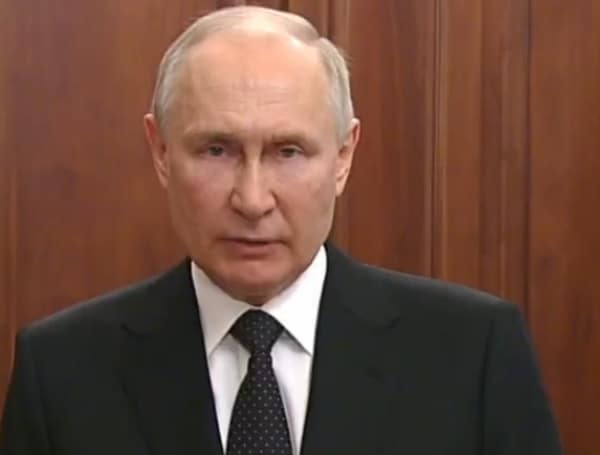
Russia’s recent amendment to its nuclear doctrine has drawn global attention, but analysts and officials suggest it represents more of the Kremlin’s recurring nuclear rhetoric rather than a substantive change in its policy or posture. Western leaders continue to view the move as part of Moscow’s long-standing strategy to deter support for Ukraine without materially altering the likelihood of nuclear weapon use.
U.S. Central Intelligence Agency (CIA) Director William Burns previously warned against overreacting to what he called boilerplate Russian nuclear saber-rattling. On November 19, an unnamed U.S. National Security Council spokesperson echoed this sentiment, describing Russia’s updated doctrine as “irresponsible rhetoric” and stating that it does not warrant a change in the U.S. nuclear posture.
READ: Putin Updates Russia’s Nuclear Doctrine After U.S. Greenlights Ukrainian Long-Range Missile Strikes
Deputy Pentagon Press Secretary Sabrina Singh labeled Russia’s rhetoric “incredibly dangerous” and “reckless” but confirmed that the U.S. has observed no changes in Russia’s nuclear readiness. Independent assessments by the Institute for the Study of War (ISW) also indicate that the use of nuclear weapons by Russia in Ukraine or elsewhere remains highly unlikely.
The Kremlin has used nuclear threats throughout the war in Ukraine to dissuade Western nations from providing military aid to Kyiv. However, reports suggest the effectiveness of this strategy is waning. A Washington Post report from September 2024 highlighted that the Kremlin is increasingly skeptical of the impact of its nuclear saber-rattling on Western decision-making.
The Kremlin’s intensified rhetoric coincides with Ukrainian use of U.S.-provided ATACMS missiles to strike targets in Russia’s Bryansk Oblast. While Russian military bloggers have speculated about potential retaliation, the Kremlin has yet to issue a clear response. Analysts suggest this lack of clarity reflects ongoing internal disagreements within Russia’s leadership.
READ: Ukraine Strikes Deep Inside Russia With US-Supplied Missiles, Marking Escalation In Conflict
Reports indicate divisions among Kremlin factions regarding the revised nuclear doctrine. One faction advocates for clearly defined “red lines” to deter Western actions, while another supports maintaining ambiguity to keep adversaries guessing. This lack of consensus highlights the Kremlin’s strategic uncertainty and its reliance on vague threats without concrete follow-through.
Despite the doctrinal update, the decision to use nuclear weapons ultimately rests with President Vladimir Putin. His personal discretion, rather than predefined rules or “red lines,” determines Russia’s response to perceived provocations. This ambiguity reinforces the view that the doctrine serves more as a political tool than a practical guide for military escalation.
Please make a small donation to the Tampa Free Press to help sustain independent journalism. Your contribution enables us to continue delivering high-quality, local, and national news coverage.
Android Users: Download our free app to stay up-to-date on the latest news.
Connect with us: Follow the Tampa Free Press on Facebook and Twitter for breaking news and updates.
Sign up: Subscribe to our free newsletter for a curated selection of top stories delivered straight to your inbox.
